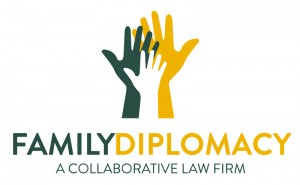Face-to-Face Mediation
I have noticed lately that there is a trend among divorce mediators in Tampa Bay: keep spouses separate from one another. This is known as “caucus”-style mediation, where the spouses are kept in separate rooms from the very beginning of mediation, and the mediator travels back and forth between the rooms relaying information and offers.
There is a good reason why many great mediators prefer caucus-style mediation. As divorce is a highly-emotional process, spouses can set each other off when they are facing one another, and negotiations can descend into argument and cease being productive.
I can see where caucus-style mediation may be appropriate for some families, but it is not my preferred method.
 Rather, when I act as the neutral mediator, I prefer to practice face-to-face mediation.
Rather, when I act as the neutral mediator, I prefer to practice face-to-face mediation.
Face-to-face mediation is just like it sounds: The spouses are in the same room. This process allows the parties to work directly together with their mediator to craft their preferred parenting plan and marital settlement agreement. As parents will still need to be able to coordinate and act in concert with one another even after their marriage is dissolved, face-to-face mediation sets them on the right path from the very beginning.
It also ensures that misunderstandings can be immediately corrected. When you have the parties in two separate rooms, the mediator can oftentimes miss some information, which can then cause unnecessary frustration. Face-to-face mediation does not require any middle man (or woman) to relay information.
Additionally, face-to-face mediation tends to be much more efficient than caucus-style mediation. Every mediator, at the beginning of the first session, provides an introduction to the spouses and explains, among other things, that the mediator is neutral and that the process is privileged and confidential. Oftentimes the introduction, including questions and answers, can take 10-15 minutes. That alone can cost quite a bit if the mediator has to go over the introduction twice. Then there are other times in a caucus-style mediation where a mediator must twice explain the same information. Because face-to-face mediation does not involve this repetitiveness, it can oftentimes cost less.
All of this is not to say that there may not be times in a face-to-face mediation where the spouses may go into different rooms for privacy or to deliberate on an offer. However, once that spouse has had the opportunity to be separate that he or she needs, the spouses will reconvene in one room so that they can be in direct contact.
Another note of my style of face-to-face mediation is that the session will only last a maximum of three hours. I make this limit because I have noticed that, if you go beyond the three-hour mark, many parties will make decisions out of exhaustion rather than because it is in the best interests of them or their children. I also limit the amount of time in recognition that, in most cases, the spouses will not have enough information to make a full decision in one mediation session; they may need to get a home or vehicle valued, or may need to get access to statements for retirement or other accounts, or they may need to know costs for daycare or extracurricular activities. Accordingly, spouses will have the expectation that it will take more than one mediation session to reach a full agreement.
When I act as a mediator, I am neutral, and I do not and cannot provide legal advice to either party. Though you do not need an attorney to go through mediation, I strongly encourage both parties to each retain an attorney who has gone through collaborative training to advise them. The reason I suggest that the attorney should be collaboratively-trained is because they have gone through an intensive course to learn to work with divorcing spouses in a non-adversarial manner, and they oftentimes have a very different skillset than trial attorneys that is much more conducive to the parties reaching an out-of-court agreement. You can find a list of collaboratively-trained attorneys throughout Tampa Bay and Greater Sarasota at http://NextGenerationDivorce.com.
Further, if both spouses have an attorney, you may want to speak with your attorneys about signing a collaborative participation agreement. This commits the attorneys to a collaborative process, where the attorneys will focus only on helping the spouses reach an out-of-court agreement; collaborative attorneys are contractually-barred from spending any time, energy, or resources on “stirring the pot” or preparing for contested court hearings.
In face-to-face mediation, attorneys can participate in mediation sessions as much or as little as the spouses want. If a spouse wants to have an attorney present throughout the mediation, then that attorney is permitted to be there. However, if a spouse only wants an attorney to provide intermittent legal advice outside of the mediation sessions or only wants to retain an attorney for the purpose of reviewing a marital settlement agreement, then those are also options.
Finally, in face-to-face mediations, spouses have the option of including neutral experts. For example, if the spouses need help filling out financial affidavits and ensuring full financial disclosure, developing options for their 401(k)’s and other retirement plans, or valuing a business or a pension plan, the spouses can retain a neutral financial professional to help them during and/or outside of mediation sessions. Similarly, if the spouses need help communicating or want to ensure that they develop a parenting plan that takes into account a child’s developmental and psychological needs, they can retain a neutral facilitator with a mental health background to help during and/or outside of mediation sessions. Neutral financial professionals and neutral facilitators and their contact information may be found at http://NextGenerationDivorce.com.
My current rates (as of February 2016) for mediation are $250 for the first two hours (with a minimum payment for two hours) and $250 per hour thereafter. These prices are subject to change.
Different mediators have different styles. Caucus-style may be best for some families, while others prefer face-to-face. You are welcome to learn more about face-to-face mediation and my style via a consultation. You and/or your spouse can schedule a consultation at (813) 443-0615, or click here to fill out our contact form.
—
Adam B. Cordover is a Florida Supreme Court Certified Family Law Mediator. Adam has presented locally, nationally, and internationally on out-of-court dispute resolution, and he is a co-author of an upcoming American Bar Association title on building a collaborative law practice.



Leave a Reply
Want to join the discussion?Feel free to contribute!